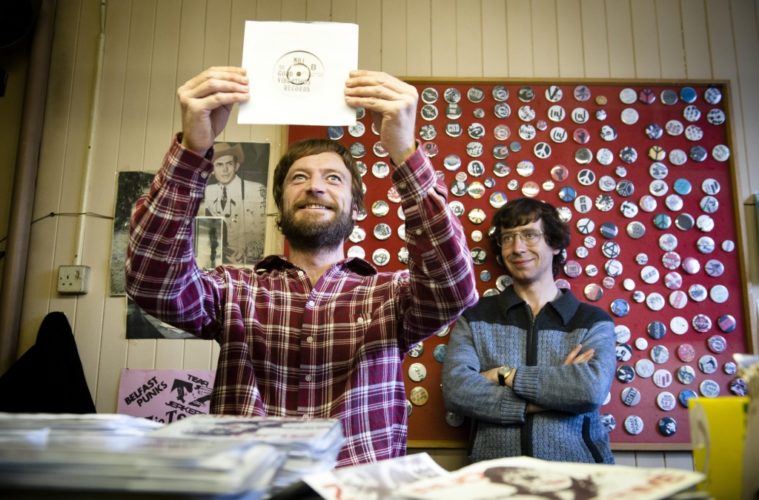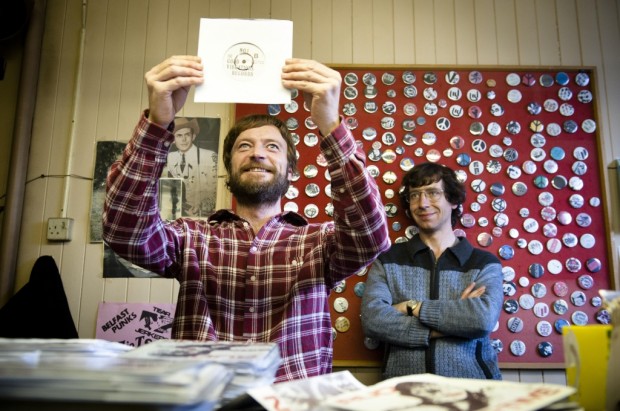
Good Vibrations fits perfectly in the world of SXSW, as evidence by our review. The film, which is a retelling of Terri Hooley and his adventures with his record store and rebel record company Good Vibrations in Belfast during the ’60s and ’70s, mixes music with film in a way that goes beyond just appreciation. There’s love, here. So I was very excited to sit down with directing duo Glenn Leyburn and Lisa Barros D’sa as well as the primary love interest in the film who is played by Jodie Whittaker. Together we talked about how we consume music on a personal level, the way the record industry has come full circle, what it means to be at SXSW, the efforts they went through in paring down Terri’s eclectic taste of music into a single film, and if they sought out anyone outside of Terri to give the film context.
The Film Stage: One of the most interesting things about this film is the festival that you’re actually playing at, because SXSW is such a unique festival with the film and music side Were you very happy about the fact that this movie is about genre and you’re at a festival where it’s kind of being shared?
Glenn Leyburn: Yeah, I think we think it’s the ideal thing for us and so when we heard we were super excited.
Lisa Barros D’sa: We couldn’t have dreamt of a better U.S. premiere. This is where we wanted it to be so we’re thrilled to be here.
Leyburn: And it seems like such a great audience festival as well and we’re really looking forward to showing it to people.
D’sa: We had the chance to come here last year and we showed a trailer for the film as part of the Northern Island Music showcase and it was our first time in Austin, we got to go to some of the screenings and we just fell in love with the festival, the atmosphere and the audiences here so we were super happy when we heard we were coming with Good Vibrations.
The film doesn’t water down a lot of things and a lot of themes. I’m curious if, obviously the guy that plays the main character, his character is a real character, this actually happened, it’s a true story. How much was he on board, the actual character?
Leyburn: Terri was there from the very start. The caption at the start, “based on Terri’s true stories” and it’s exactly that. Meeting in a bar with Glenn Patterson and Colin Carberry, another writer and Terri was telling me the stories of what happened in the 70s and 80s and all the different things that then became what the film…
D’sa: And I think, our lead actor, was a theater actor and on the island and in the U.K. and I think what’s lovely about his performance and the way that Richard works as an actor, he very much likes to explore a character from the outside in. Physical kind of characteristics and the way the physicality of the character works. You find kind of the internal character through that. For him it was wonderful because he was able to spend time with Terri himself in Belfast and get to know him a bit and really kind of find the character by hanging out together.
Jodie Whittaker: Speech, the way he walks, the way he lives, its incredible what he did because when Terri came to set it was fascinating to see them together.
D’sa: Even down to the point where, Terri has a glass eye and in making the film we had to add a special kind of contact lens. It’s very uncomfortable to wear. It can only be worn two hours of the day because it’s dangerous to the health of the eye. But Richard went one further, he kind of insisted they make the lens opaque so you couldn’t see through it at all and so he was able to actually feel the reality of moving through the world as someone with a glass eye. I think that really helped him to shape the nature of Terri’s character. And he told us a story of when he’d been on holiday before that, in order to take out the contact lens he would spend several hours a day on holiday walking around with one eye taped shut so that he could start to get to know his character. I think his wife found it rather odd during the course of the holiday.
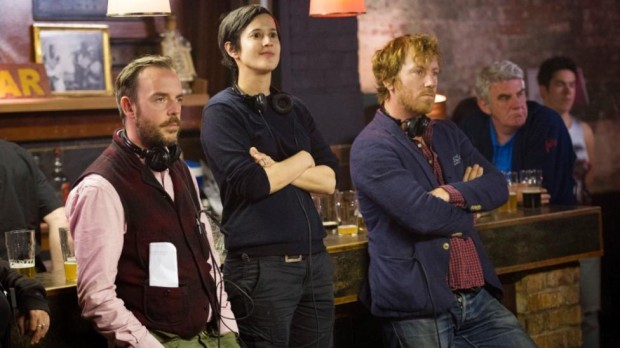
You hear stories about people with one eye or missing an eye and they look a certain way. They watch their surroundings because they have a blind spot, it’s very uncomfortable.
D’sa: There’s perhaps extra caution that they have to bring to their presence in the world and you can feel that and I think the character of Terri, even though he’s this very charismatic, very outspoken character in many ways. There’s also this great kind of vulnerability about him that I think Richard was able to really bring to the role. It’s almost like a child-like quality I think and innocence really is at the heart of Terri. And even though he can be a frustrating character in many ways and certainly got things in his life wrong and I think that’s the reason people were so very drawn to him because of that very genuine vulnerability.
One thing I’m curious about, I mean obviously you’re drawing on Terri’s story and things like that but did you seek out people in his surroundings, in his life and maybe get their side of it or was it basically from Terri’s side only?
D’sa: Well the main story, the script, is very much based on Terri’s story. This wasn’t a documentary; we weren’t trying to tell the story of everyone’s experience at that time. It was always going to be from that one point of view and I think in telling any story you’ve got to be selective about your point of view. At the same time, the writers did talk to Ruth because she was the other main character in the film. It’s about the relationship between the two of them very much and that was very important to creating a balance in the story. I think what Jodie so beautifully to the part was this great strength and intelligence that Ruth has and her great passion for the ideals that she shared. She was very involved in creating this alternative world that’s outside of the conflict. Ruth worked as a truant officer. She was a great poet, she was as passionate about those causes as Terri was and supporting and helping the young people. So it was very important to get her point of view in there and at the same time there were a lot of guys who were very much around in Belfast who we got to know, we already knew some of them from those paths. Rudi and The Outcasts and they had many anecdotes to tell us and they were really super helpful in helping out wardrobe and helping out the art department, giving us photographs and just tales of the time which really helped us for detail in the world. But at the same time, we always knew we weren’t trying to tell everybody’s story. It had to be this one version for it to make it clear.
I’m curious for you [Jodie], obviously this film is so much about underground and things like that and I’m curious how much is music an influence on your own life?
Whittaker: Oh, for me massive. Unfortunately sad I didn’t know a lot about the music until I became involved in it and got the part which is always brilliant I love when you get a job and it revolves around learning about something like culturally or musically or is a skill that you kind of have to adopt. So that was fascinating. But for me, personally I’m a huge music fan and there’s quite a few bands that I’m going to try and stalk while I’m here not that I’ve realized they’re in Austin. So I’m like Mel from Flight of the Conchords. [Laughs]. I’m outside these bars just staring quite terrifyingly at people. But yeah and that’s why I think it’s true what you said about Austin. I think, if anything, it’s a celebration of music and film. If it’s a passion as an actress or an actor you can see that but when you watch a film and you immerse yourself in the music, whether it be the score which has been beautifully done by David Holmes who’s also our producer or if it’s the soundtrack of music you can relate to, that only adds to it. It has to have so much of that musical element in it because it wouldn’t be Terri without it and that’s what was great when I read the script it was just so colorful and it didn’t read like anything I’d read before. Particularly with it being set in the 70s and 80s in Belfast and it not focusing on the troubles, which is just such a relief because there are enough films about that and that story had been told and is told in really fantastic ways but it didn’t need to be again. And to tell a story about a guy who fought against that and came out on top in many ways.
D’sa: Not the obvious ways but certainly in there for Terri. They weren’t financial. Terri’s still living the same kind of life he was back then. He’s still got a version of the shop he’s still supporting indie bands.
And the music scene has changed so much within just the last ten, fifteen years. It rapidly progressed and I’m curious, you’re focusing on such a time period where they’re literally trying to create something out of nothing, creating an industry all by…
Whittaker: But do you think it’s actually slightly gone a bit full cycle now. Obviously with what Terri was doing, which is fighting the industry and not meeting these huge record companies and got them out of there he believed in them and I think now with the Internet it’s really amazing and so exciting. It isn’t about the person that’s got the most money behind them and the most posters on the wall. We are able to hear normal music again and that’s normal which is weirdly more like it now than it would’ve been ten years ago because fans weren’t so monopolized by manufacturing the bands to cater to the taste of the day because now huge huge artists don’t have record labels because they’re not interested in that and to know that someone in the 70s was fighting that as well is just brilliant.
Leyburn: Yeah I mean I guess the big change as well is the record shop and the demise of the record shop is one of those things. There’s still a hardcore really fantastic record shop still and vinyl does seem to be having a bit of resurgence which is an amazing thing. What would be terrible, and I think maybe it’s one of the things in the film that you really see is that, a record shop could be the heart of the community for youth, where people can get together in whatever country in the world it is and can kind of bond with their love of music and it would be a real shame to see these shops disappear to online downloads and whatever.
D’sa: Absolutely.
Leyburn: So the importance of these sort of stores has helped communities I think is still something…
Whittaker: That sort of thing has sort of come back in fashion. There absolutely is that and music is about community. Sometimes when you say things like “community” it’s a really easy and nice way of saying… so punk scene in Belfast had to fight against so much to just exist and they did and they left everyone who’s heard of him.
Well I think it’s interesting that you mention “full circle” because I think it’s even done that in the record stores themselves because the Best Buys of the world, the big major multi-story stores are going down because of the online retailers and all of a sudden there’s a need to be able to go into a store, talk to someone who knows music and “oh, wait, you actually have that album”.
Whittaker: You have that album made by someone who didn’t need Sony and didn’t need Warner and they managed to get their music out there because there is a culture now to kind of sift and to research and to look into new bands, into new artists rather than waiting to be told what to like.
D’sa: And it’s almost like a curated space in the record shop; you’ve got somewhere you can come and learn from and who’s got more of a significance than just being someone you hand the money to.
Leyburn: If you do go to record shops there’s a trust that’s built up there, things that they recommend and they get to know what you like and recommend things for you.
Music is such an influence on this film and it’s obviously in your lives as well, the two go hand in hand and I know you have something called Canderblinks. Tell us a little bit about what Canderblinks is about.
D’sa: Well it’s a company that Glenn and I and David [Holmes] started up a few years ago. We’ve all been friends for a very long time and we always talked back in the earl days, when David was DJing in pubs and Glenn was designing flyers, Glenn comes from a graphic design background, so he was doing that and he used to design David’s record covers. And we would talk back in those days about making films together, it was one of those things you just kind of talked about as friends late at night and I was writing, I did a screenwriting master’s a few years ago and I was just trying to get my own stuff off that ground and that’s when we started. We set up a production company to make our first short film, David did the music and he produced it with another producer in northern Ireland and it just really started there. And I think the ethos behind it was always to generate. You can’t sit around waiting for projects to come to you. We had to generate projects that we felt really passionate about with creative people that we wanted to work with. We’d been very inspired by companies like Revolution in London and their very kind of collective-y thoughts, this kind of getting a family and like-minded people together who are very passionate about creating interesting projects, stuff that has heart but also has an edge. So the three of us thought that and it was about starting that family and bringing those projects in that we felt we wanted to make ourselves and now we have slate, five different pictures and Good Vibrations was the first feature that we produced, coincidentally with Revolution in London. That was great.
Leyburn: They are sort of our heroes.
D’sa: Yeah they had been a great model for what we wanted to do in the early stages but already we’re working with amazing talent and bringing in actors like Jodie and some great writers like the guys who wrote Good Vibrations, we’re working on another screenplay with them and we’re working on an adaptation of one of Richard Dormer’s plays, he also a very brilliant playwright and there’s a script I’m writing myself and we’re working with Mark Cousins as well who’s a very well-know film maker in the UK, to produce a film of his. So we’re just kind of growing a family and growing projects along the way and David and Glenn are just kind of still generating all of those projects and driving things creatively as much as we can.
This is a festival but it’s also a bit of a networking thing as well. Do you have the opportunity and you mentioned you’re gonna track down some bands.
Whittaker: Certainly not networking it’s more stalking.
[All laugh].
But I mean are you here to try to see if you can discover something else, maybe even music wise?
D’sa: Oh god, yeah of course. I mean that’s one of the real joys of this festival. We had such a great time last year we just wandered around 6th Street and everywhere you go you walk into an open door and there are five different bands playing; two of them you might’ve heard of, three of them you probably won’t have and you just sit there and then wander on to the next place and it’s just incredible. And yeah you gotta be really open to hearing what’s new and the new voices out there, you never get opportunities like this where so many people are down here from all over the world. It’s fantastic.
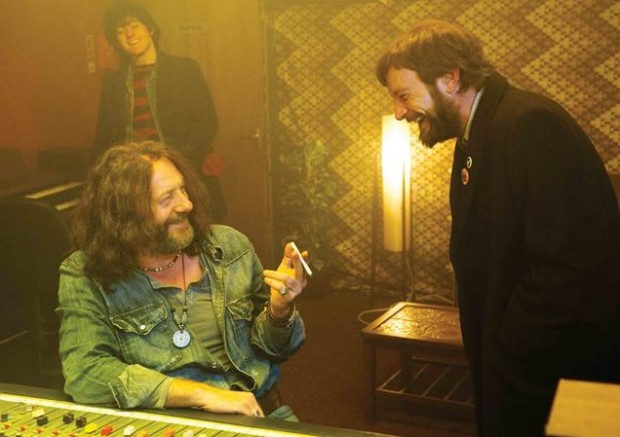
Talk a little bit about the selection of the music inside the film itself and how difficult it was to pare things down because I can imagine you had a lot of tracks in mind , a lot of different bands in mind and talk about that process.
Leyburn: Yeah well I mean I think actually at one point we had 55 tracks that we were looking to clear. Which, at the time, we were thinking “yeah of course 55 tracks” and then the producer said “yeah, I think this is about 25 more tracks than has ever been in a film.” So we did need to pare that back and it was tricky to pare it back because the thing is, Terri has such an eclectic music taste and that sort of drew us from the start and we set up Good Vibrations to promote Reggae in Belfast but his favorite band of all time is The Shangri-Las and he loves all great music. So having Terri there is one thing and we also had David Holmes who is, of course, another great music buff and, equally like Terri has a huge eclectic taste so we had to kind of hone things down and really just pick the important tracks and focus on them, which I think was probably the right decision because it gives these tracks space and sometimes you need silence for other tracks to really shine. If it’s wall to wall music it can become a little bit harsh so I think that was a good decision, both financially and for the movie. [Laughs].
D’sa: Yes, the space can speak as much as the music.
Leyburn: We were really lucky. We didn’t have a huge amount of money; it’s not a mega budget movie so we didn’t have a huge amount of money to clear music but we were lucky that a lot of people who were on the sound track were all really kind and supportive of the film and came in and didn’t charge us the price of a host to put the tracks in the movie and we had some great people, we’ve got a David Bowie track in there, god knows how we got that. [Laughs]. And we got The Shangri-Las, we got all the punk bands. It’s fantastic.
D’sa: Yeah, Suicide, amazing band, we’ve got tracks of theirs in there which is a great, new, just really eclectic range.
Whittaker: But I think without any kind of interest or knowledge of punk, the film works without that. You think that’s what the movie, when we’ve gone to all these screenings. We’ve been to South Korea. We’ve been all over the world and to come at it cold without any knowledge of Belfast history, or Terri, we’ve had great response from that point of view and all age groups as well.
Leyburn: Yes and actually that is a treat it does seem to play to a lot of age groups, which is a big thing I guess.
D’sa: Those are things you can hope for but you’re never quite sure. We always hoped that it was a universal story, that there were universal themes to do with youth and resistance and it was more about that “do it yourself” kind of spirit rather than just about music. In some ways we never felt it was about music at all, we felt it was about those themes and so you hope that’s gonna communicate to people and it’s been really lovely for us to feel different cultures got it.
Whittaker: And I think it’s also good that people can see you don’t need that traditional view. Terri makes mistakes. Even at the end you’re like-
Leyburn: “Nooo!”
Whittaker: But that’s brilliant. People want to see that flawed character’s life.
D’sa: Contrary spirit that isn’t always a positive thing.
Leyburn: There’s that line in the film where he doesn’t look the way people expected and I think that’s very true. The good vibe’s bands didn’t necessarily sell a million albums they didn’t necessarily end up doing world tours but they changed something really spectacular, which this film celebrates. They saved people’s lives and that seems like a very big statement to say but it did because those were dangerous times and it stopped people from moving into places where they’d end up in jail or end up shot or end up whatever. So they did important things and they were great victories but just not in the way people expect.
D’sa: I think Terri didn’t solve all the troubles but he definitely made this difference in people’s lives and that’s something that we felt was worth celebrating.
One thing I’m curious about is, the way that people consume music varies from person to person to person and the way that they do that. I’m curious if you are able to write while you listen to music. I know, personally, I’m not able to listen to music and write anything creatively. When I write about a movie or write about a story or things like that I have to shut it down and I know a lot of people in their daily lives and they get to music while they work. It’s very frustrating for me to be “You listen to music all day?”
Whittaker: The thing about music is I can’t deal with. You know when you’re in an environment and it’s a bit quiet and I wanna listen to it but you can’t deal with that noise that you can’t quite engage with and so when I listen to music it’s a really active thing and I sit there in a trance with earphones on just really listening and I think that’s what you gain as well when you pick the moments to hear the songs. When you hear teenage kids, you hear it and the audience are meant to be listening.
Leyburn: And it’s been withheld.
Whittaker: Can you write with music on?
D’sa: No I mean I fool myself that I can but I know I’m fooling myself. It’s when I kind of want to feel like I’m concentrating but I’m not absolutely concentrating. I’m a big fan of silence I have to say.
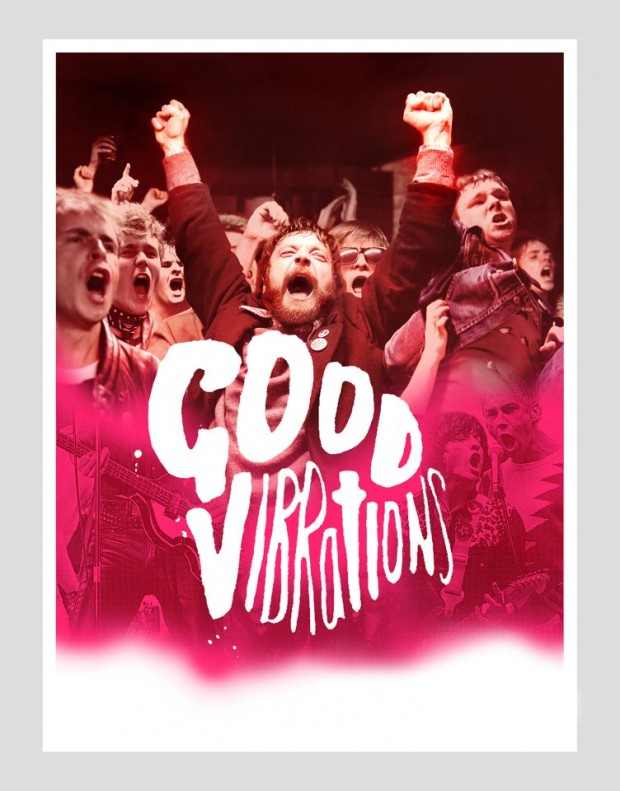
I like having something called pink noise where it’s like on a wavelength above white noise and it just basically is like a constant fan and it just drowns out everything. And so I use that because, when I was in college they had a little study room and it had a little outside unit inside and it was jut constantly running and it just drowned out everything. It was wonderful because you could sit down and just kind of lose yourself.
Leyburn: It’s interesting, when I designed a lot I was in front of a computer and I would listen to music but it would take me out a bit but there was certain music that didn’t. Brian Eno and all that proper ambiance stuff was good because it sort of washes on a level and actually you kind of got to a point where you didn’t hear it but you sort of rises and falls, sort of emotional things without ever really engaging with it…
Whittaker: I think sometime it does help. One of the nice things about having worked with David is he’s really involved with music at very early stages of the project so this script that I’m writing at the minute, we’ve talked about it a lot and he’ll just send through playlists and stuff that he’s picked out that feels like it’s part of the same world and he’s got a brilliant instinct and sometimes that’s really good actually if you’re sitting writing or working of screenplays and your sort of have a soundtrack already and you’re playing it while you’re working and it can really help to feel the world as well as build the world and I really love that and that’s something I got quite used to.
Leyburn: Yeah, that’s totally true because all the way through because it was a couple of years of development to this at least before it came to the screen and all the way through was David going through tracks and sending them over and saying “what about this” or Terri would post something on Facebook and David would spot it on Facebook and say “oh yeah Terri just put this up last night, we should think about this.” And then actually even during the cutting process we’re obviously temping it ourselves with the editor but those scenes that we’d been cutting we’re sending to David as well and he’s temping them too.
D’sa: Ten different ideas to get to one that really works but it’s just lovely to have music. It’s such an important part of the film and so often it feels like an after effect that you stick on at the last minute but for us it’s always part of the organic process.
Good Vibrations recently hit theaters in the UK and is seeking US distribution after its SXSW premiere.

